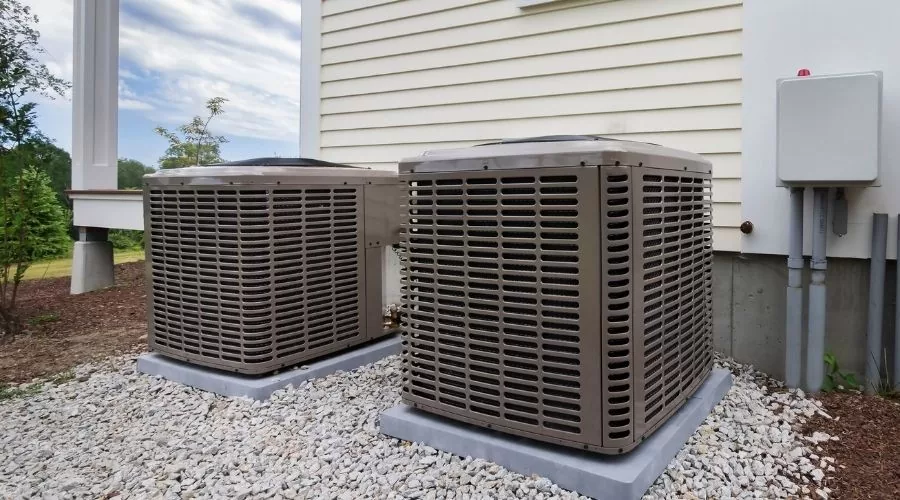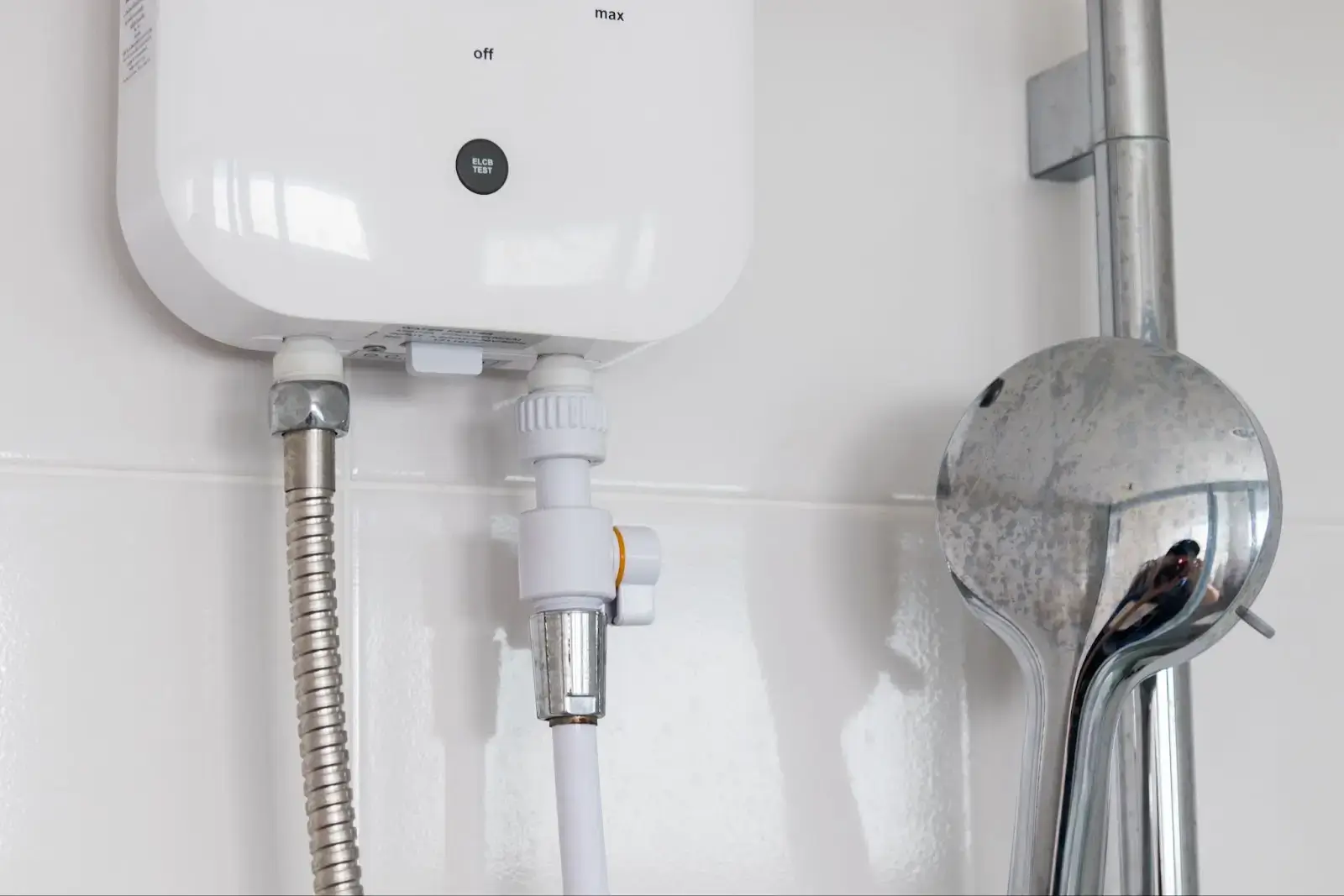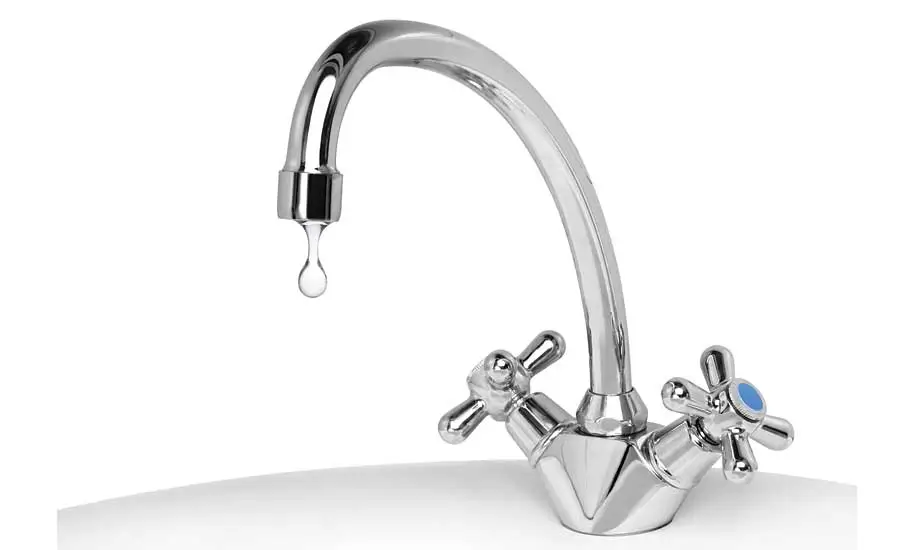
In the quest for efficient and cost-effective home heating solutions, dual fuel systems stand out as a versatile and smart choice, especially in a climate as varied as Portland's. But what exactly is a dual fuel system, and how does it work to keep your home comfortable year-round?
At first glance, the term might conjure up images of complex machinery, but the concept and operation of dual fuel systems are rooted in simplicity and efficiency. Here, we'll unravel the workings of dual fuel systems, a technology that cleverly combines the strengths of two different heating methods to provide optimal home comfort. Ideal for regions with fluctuating weather conditions, these systems intelligently switch between fuel sources based on temperature, cost, and efficiency.
Join us as we dive into the world of dual fuel systems, exploring how they function and why they might be the perfect heating solution for your Portland home. Whether you're a tech enthusiast or simply looking for the best way to stay warm, we’ve got you covered.
Understanding Dual Fuel Systems
A dual fuel system is a sophisticated yet practical solution for home heating, combining the energy efficiency of an electric heat pump with the powerful warmth of a gas furnace. This system is designed to utilize the most advantageous features of both heating methods, adjusting to different weather conditions to provide optimal home comfort.
Key Components:
Electric Heat Pump: This component operates efficiently in moderate temperatures. It operates by harnessing warmth from the external atmosphere and conveying it into the interior space. During warmer months, it can reverse its function to cool your home, acting like an air conditioner.
Gas Furnace: When temperatures drop significantly, the system transitions to utilizing the gas furnace. This component is known for its powerful heating ability, making it ideal for the colder, harsher temperatures when a heat pump's efficiency is reduced.
Energy Efficiency: The system's ability to switch between an electric heat pump and a gas furnace based on temperature optimizes energy use. This not only ensures a comfortable indoor environment but also contributes to lower energy consumption.
Environmental Impact: Opting for dual fuel systems reflects an environmentally responsible decision. The heat pump, which is used most of the time, is energy-efficient and reduces reliance on fossil fuels, thereby decreasing your home's carbon footprint.
The Mechanics of Dual Fuel Systems
The operation of a dual fuel system is a fine example of technological synergy, where two distinct components work together to create a more efficient whole.
Transitioning Between Systems: The system uses a thermostat or control system to monitor outdoor temperatures and determine the most efficient heating method. When the air outside is moderately cold, the heat pump is active. As temperatures drop further, the system seamlessly transitions to the gas furnace.
System Configuration: Dual fuel systems are configured to prioritize the heat pump for its energy efficiency and cost-effectiveness. The gas furnace is used as a secondary source, primarily for extremely cold conditions, ensuring that energy usage is optimized throughout the year.
Adaptability: This type of system is particularly advantageous in regions like Portland, where weather conditions can vary significantly. The dual fuel system's ability to adapt to these changes not only ensures constant comfort but also enhances the system's overall lifespan by preventing overuse of either component.
Integration with Home Systems: Modern dual fuel systems can be integrated with smart home technology, allowing for remote monitoring and control. This integration provides homeowners with the convenience of adjusting settings as per their preferences and receiving real-time updates about their system's performance.
Dual Fuel Systems vs. Traditional Heating Methods
When comparing dual fuel systems to traditional heating methods, several key differences emerge that highlight their superiority, particularly in climates like Portland's.
Versatility in Temperature Management: Traditional heating systems, such as standalone gas furnaces or electric heat pumps, often struggle to maintain efficiency across the spectrum of Portland's weather conditions. Dual fuel systems, on the other hand, excel in this aspect due to their ability to switch between heating modes.
Energy Efficiency: Standard heating systems typically operate on a single fuel source, which may not be the most energy-efficient option throughout the year. Dual fuel systems optimize energy use by choosing the most efficient method based on current weather conditions, leading to overall better energy efficiency.
Cost-Effectiveness: While traditional systems may incur higher costs during peak usage times or in extreme weather conditions, dual fuel systems can reduce these costs by intelligently switching between the heat pump and gas furnace.
Environmental Impact: Compared to traditional heating methods, dual fuel systems offer a more environmentally friendly option. They reduce reliance on fossil fuels and optimize energy consumption, contributing to a lower carbon footprint for your home.
Choosing the Right System for Your Portland Home
Selecting the ideal dual fuel system for your Portland home involves considering several factors to ensure that it meets your specific needs.
Assessing Your Home’s Needs: Evaluate the size of your home and its insulation quality. Larger homes or those with poor insulation may require systems with higher capacity.
Climate Considerations: The climate in Portland features gentle summers and chilly, damp winters. A dual fuel system that efficiently transitions between its components during these seasonal changes is ideal.
Energy Cost and Efficiency: Analyze your current energy costs and consider how a dual fuel system can reduce them. Look for systems with high Seasonal Energy Efficiency Ratio (SEER) and Annual Fuel Utilization Efficiency (AFUE) ratings.
Professional Consultation: Consulting with a heating and cooling professional, especially one familiar with the Portland area, is crucial. They can provide insights into the best system for your home based on its size, your budget, and local climate conditions.
Future-Proofing: Consider the long-term implications of your choice. A system that may be slightly more expensive initially but offers better efficiency and durability can be more cost-effective in the long run.
Installation and Maintenance
The effectiveness and longevity of a dual fuel system heavily depend on proper installation and regular furnace maintenance.
Professional Installation: Installing a dual fuel system is not a DIY project. It requires the expertise of professional technicians who understand the complexities of both heat pump and furnace systems. They ensure that the system is correctly sized for your home and installed according to industry standards for optimal performance and safety.
Key Installation Considerations: The process involves setting up both the heat pump and the gas furnace, along with the necessary ductwork and control systems. Proper placement and calibration are crucial to ensure efficient operation and seamless transition between the two systems.
Regular Maintenance: Like all heating systems, dual fuel setups require regular maintenance to keep them running efficiently. This includes routine checks of the thermostat, filters, ducts, and electrical connections, along with professional servicing of the heat pump and furnace components.
Preventative Care: Preventative maintenance can help avoid costly repairs and extend the system's lifespan. It's advisable to schedule annual check-ups with a heating and cooling professional to ensure everything is functioning correctly.
Cost Analysis and Savings
Understanding the financial implications of a dual fuel system involves looking at both the initial investment and the long-term savings.
Initial Investment: The upfront cost of a dual fuel system can be higher than traditional heating systems due to the inclusion of both a heat pump and a furnace. However, this cost varies depending on the size and model of the system, as well as the specific requirements of your home.
Long-Term Energy Savings: The real financial benefit of a dual fuel system lies in its energy efficiency. By optimizing fuel usage based on temperature, these systems can lead to significant reductions in energy bills, especially during the colder months.
Return on Investment: While the initial cost may be higher, the savings on utility bills can quickly offset this. Homeowners often see a return on their investment within a few years, followed by continued savings throughout the lifespan of the system.
Incentives and Rebates: It's worth exploring any available incentives, rebates, or tax credits for energy-efficient home improvements. These factors can additionally lower the total expenses associated with implementing a dual fuel system.
Environmental Cost Savings: Apart from financial savings, the reduced environmental impact of a dual fuel system is an intangible yet significant benefit. By lowering your reliance on fossil fuels and reducing greenhouse gas emissions, you're contributing to a healthier planet.
Dual Fuel Systems: The Path to Year-Round Comfort with Sunset Heating & Cooling
The journey to find an efficient and adaptable heating solution for your Portland home doesn't have to be complex. With dual fuel systems, embracing both energy efficiency and reliable comfort becomes a seamless reality. Understanding how these systems work and the benefits they bring is just the beginning of enhancing your home's warmth and coziness.
At Sunset Heating & Cooling, we're more than just service providers; we're your partners in ensuring that your home is equipped with the best heating solutions available. Our expertise extends to every aspect of dual fuel systems, from guiding you in choosing the right setup for your specific needs to professional installation and ongoing maintenance. Our team of seasoned professionals is equipped with the knowledge and tools necessary to tackle any heating challenge, ensuring that your home is comfortable, no matter the weather outside.
Embrace the advantages of a dual fuel system and enjoy the perfect balance of efficiency and comfort in your Portland home. For expert advice, installation services, or any heating inquiries, don't hesitate to contact us at Sunset Heating & Cooling. We are committed to keeping your home warm and comfortable year-round, regardless of Portland's ever-changing weather. Call us today at (503) 500-5866 and take the first step towards a more efficient, comfortable, and cost-effective heating solution for your home.







